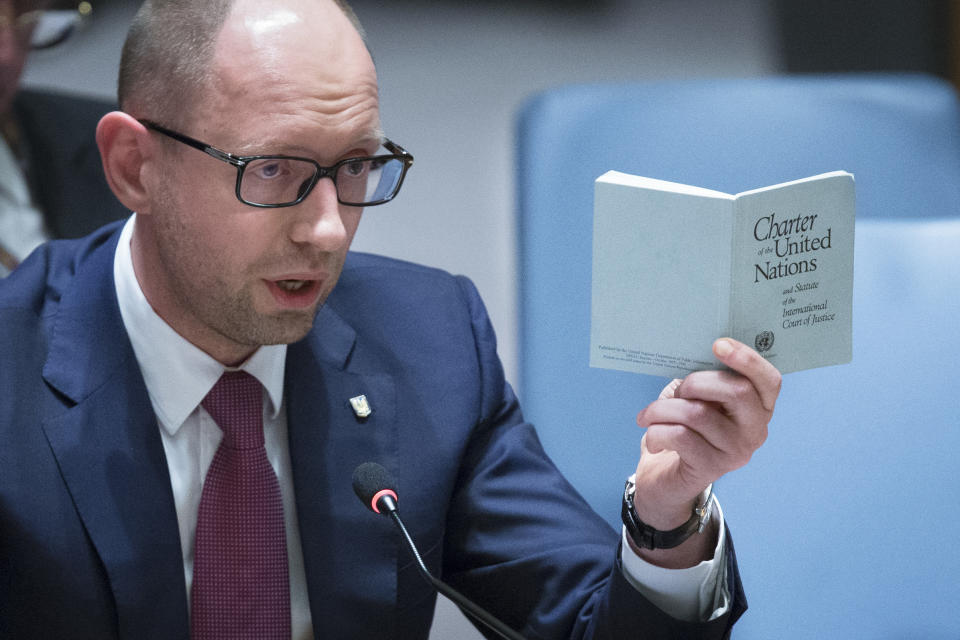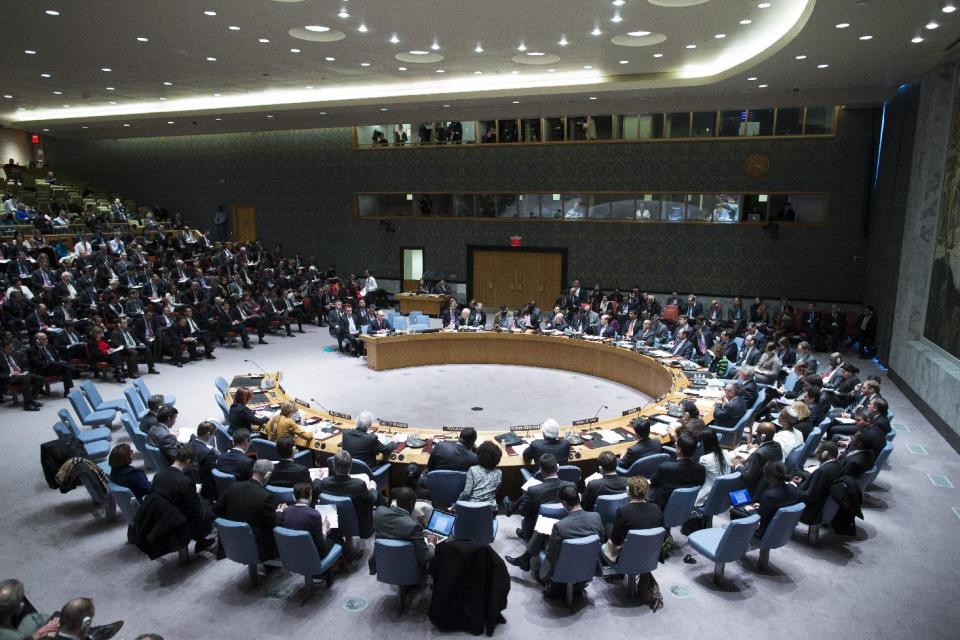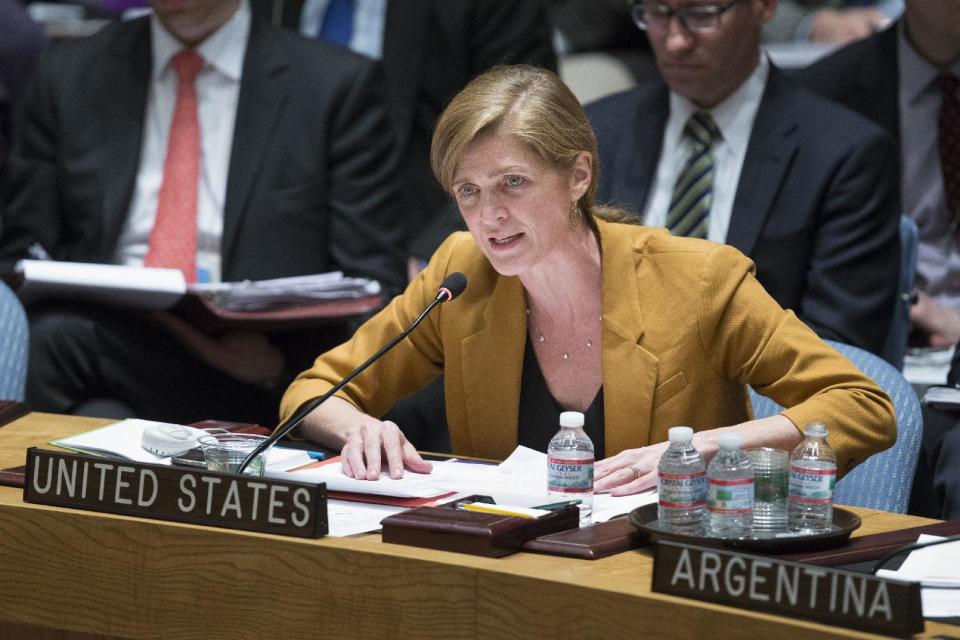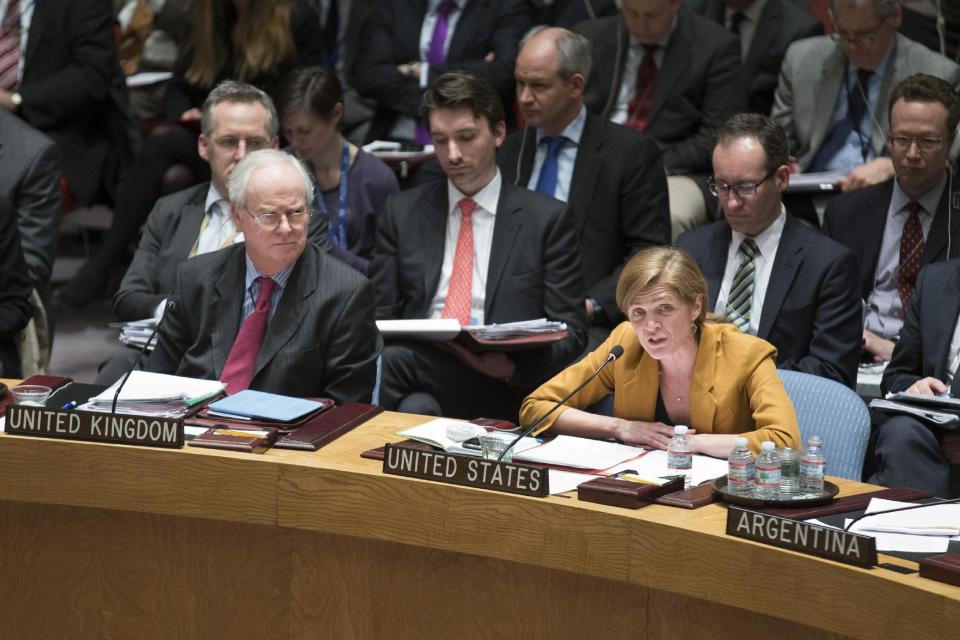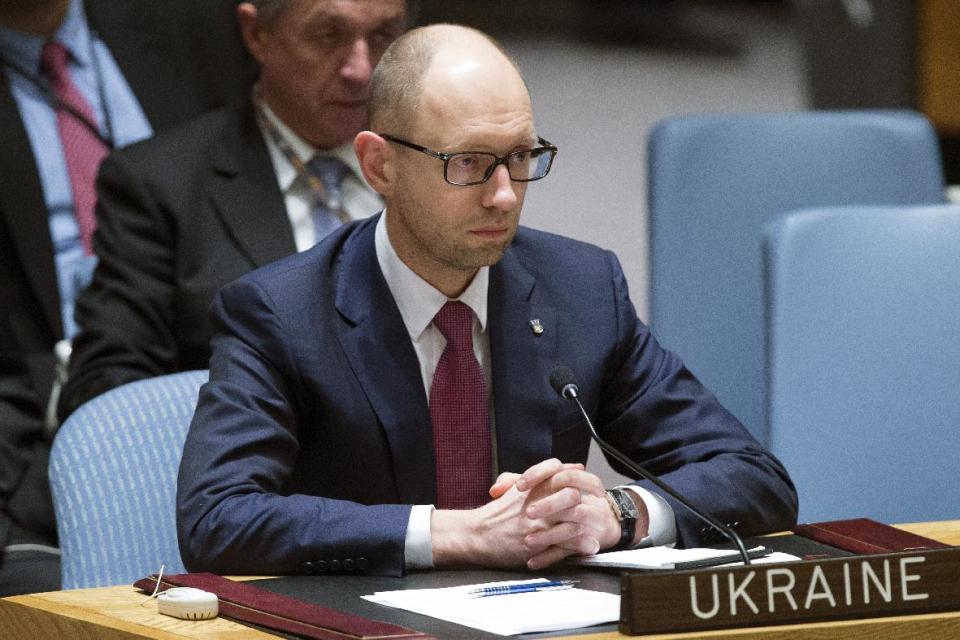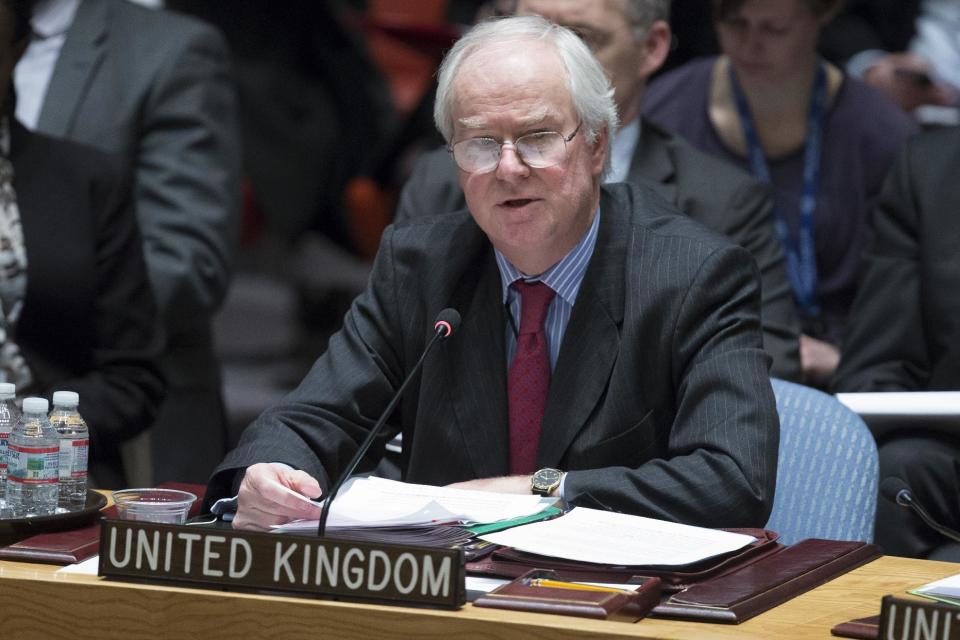Ukraine accuses Russia of 'military aggression'
UNITED NATIONS (AP) — Ukraine's prime minister told the U.N. Security Council on Thursday that Russia had carried out "military aggression" in Crimea, and dramatically switched from English to Russian to ask Russia whether it wants war.
Russia's U.N. Ambassador Vitaly Churkin gave him a direct answer: "Russia does not want war and neither do the Russians, and I'm convinced the Ukrainians don't want that either."
Prime Minister Arseniy Yatsenyuk said Ukraine has had "warm and friendly relations" with Russia for decades and he is also convinced "that Russians do not want war."
"And I hope that the Russian government and the Russian president will heed the wishes of their people and that we return urgently to dialogue and solve this conflict," he said.
Churkin did not respond to Yatsenyuk's call to return to talks. Instead, he criticized the "illegal" and "forceful overthrow" of President Viktor Yanukovich and asked why a European-mediated plan signed by Yanukovych and Ukraine's protest leaders to form a new government and hold an early election wasn't seized upon and implemented. Russia refused to sign the agreement but now supports it.
"Instead of a government of national unity as provided for in the Feb. 21 agreement," Churkin said, "in Kiev what you had was a government of the victors."
In his brief speech, Yatsenyuk accused Russia of violating the U.N. Charter and several treaties and urged Moscow to pull back its troops in the Crimean Peninsula to barracks and to start real negotiations to tackle the conflict.
The public in Crimea will vote on Sunday whether to break away from Ukraine and become part of Russia. Russia on Thursday conducted new military maneuvers near its border with Ukraine.
"This aggression has no reasons and no grounds," Yatsenyuk said. "This is absolutely and entirely unacceptable in the 21st century, to resolve any kind of conflict with tanks, artillery and boots on the ground."
Later, speaking to reporters, he wondered aloud whether "the final destination" of Russia's military is Crimea, Kiev or other cities ruled by the Soviet Union 60 years ago.
Yatsenyuk stressed that the conflict goes beyond his country's borders, reminding the council that Ukraine gave up the world's third-largest nuclear arsenal in 1994 in exchange for guarantees of its territorial integrity, sovereignty and independence by three nuclear powers — Russia, the United States and Britain.
"After these actions, it would be very hard to convince anyone in the globe not to have nuclear weapons," he said.
The council was holding its sixth meeting on Ukraine in less than two weeks. It has been unable to take any action because Russia, as a permanent member, has veto power.
Shortly before the meeting, the United States circulated a draft resolution which would reaffirm the Security Council's commitment "to the sovereignty, independence, unity and territorial integrity of Ukraine within its internationally recognized borders."
The draft, obtained by The Associated Press, urges all parties "to pursue immediately the peaceful resolution of this dispute through direct political dialogue," to protect the rights of minorities in Ukraine.
It notes that Ukraine has not authorized Sunday's referendum in Crimea, and "declares that this referendum can have no validity, and cannot form the basis for any alteration of the status of Crimea."
Western powers are hoping for a vote on the resolution before Sunday's referendum.
U.S. Ambassador Samantha Power said the resolution is aimed at "showing the extent of Russia's isolation as it pursues a non-peaceful path" — even though Russia is virtually certain to veto it.
Supporters are hoping that China, which usually supports Russia, will abstain rather than join Russia in vetoing the resolution.
China's U.N. Ambassador Liu Jieyi reiterated Beijing's support for Ukraine's sovereignty and territorial integrity.
"It is China's long-standing position not to interfere in other countries internal affairs," he said. "All parties must exercise calm and restraint and prevent further escalation."
Power told the council that more than 20,000 Russian troops are in Crimea ahead of Sunday's referendum.
She said the United States and other nations "call for the suspension of this referendum, which cannot be regarded as legitimate, especially against the background of foreign military intervention."
British Ambassador Mark Lyall Grant added that a "free and fair referendum cannot possibly be held where voters are casting their ballots under the barrel of a gun."
France's U.N. Ambassador Gerard Araud warned that if the referendum goes ahead Russian diplomacy in the future "will only encounter mistrust."
"Russia should not lose a game of chess for the very ephemeral pleasure of taking a piece from the board," Araud said. "The pleasure is very ephemeral indeed."
Russia's Churkin responded by stressing that the concept of a referendum isn't new, pointing to a vote set for November on whether Catalonia should be independent from Spain, a vote upcoming in Scotland in September on independence from Britain, and a March 2013 vote in the Falkland Islands to remain part of Britain.
"Why should the people of Crimea be an exception?," Churkin asked.

